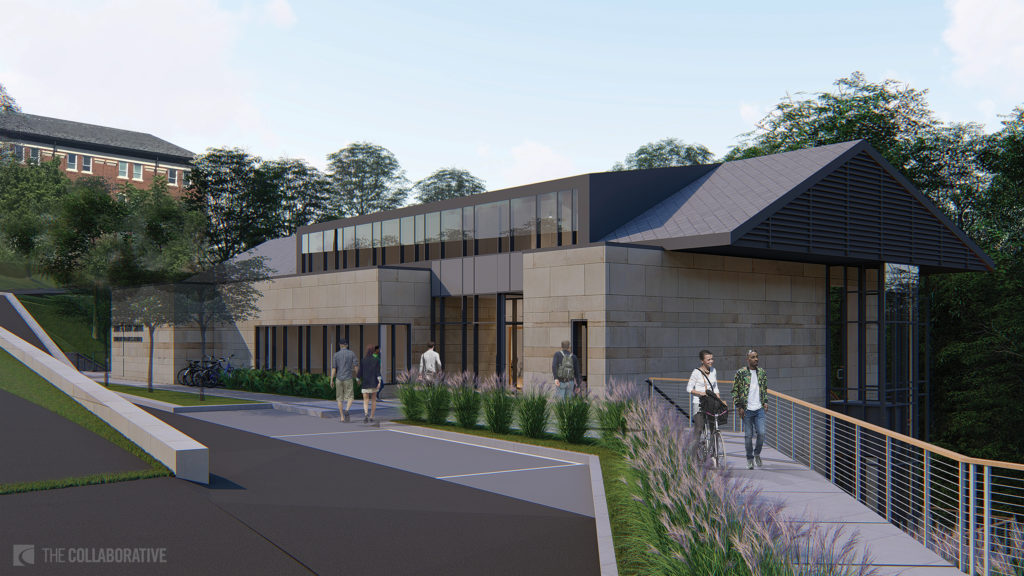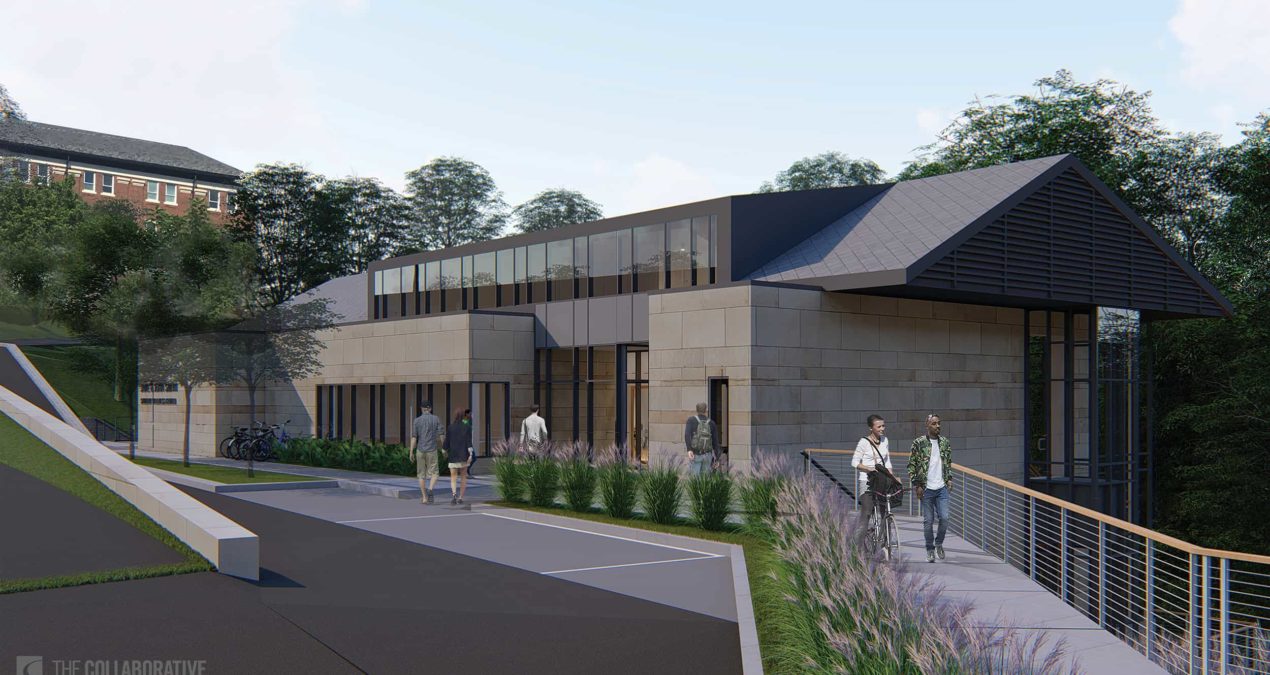
AARON SKUBBY, News Editor—When Whisler Hall first became the student health center, Herbert Hoover had just begun his presidency. After nine decades, Denison University will be constructing a new Student Wellness Center.
The building is planned to be built on the hill outside the parking garage. Director of Facilities Services Art Chonko explained that the design process has involved “students; the office of Student Development; all of the occupants of Whisler including the Directors of Counseling and Health Services.”
Denison is working with an architect who has experience with similar projects, and the university has contacted and visited other schools that have created similar facilities.
In terms of funding, Chonko said that “A number of alumni have donated funds to support the project, it is also being funded using bonds that the university borrows for some construction projects. We hope to continue to raise excitement and additional donations for the project.”
Denison health services aspire to promote wellness simply beyond basic physical health, something that is important in the design of the Wellness Center.
As explained by Director of Student Health and Wellness Dustin Brentlinger, “Over the past few years, we have moved from a healthcare model to a wellness model. We want students to recognize the importance of becoming aware of and make good choices toward a healthy and fulfilling life. Denison believes wellness is more than being free from illness but is a dynamic process of change and growth.”
This philosophy is being reflected by the planned design of the Wellness Center. Brentlinger explained that “the new Student Wellness Center will offer an environment that has a positive effect on health outcomes.”
The building will feature natural lighting, connections to nature, and open spaces that encourage movement through the building. The outdoor space will offer quiet locations for reflection and edible plantings for use in the dining halls and teaching kitchen.”
In addition, the building will offer resources for emotional health such as “a movement studio, group spaces, and a teaching kitchen” according to Brentlinger. One potential service being offered is healthy cooking classes for seniors. The building will continue to incorporate existing alternative therapies such as reiki and aroma touch.
The Student Wellness Center will also see a greater integration of mental and medical health services. Integration has already begun through sharing of records and team meetings, but would be further improved by “placing all providers on the same floor and providing centralized administrative space for both medical and mental health services,” said Brentlinger.
Brentlinger summarized the intentions for constructing a new wellness center: “the new Student Wellness Center provides an opportunity to continue to integrate our current healthcare services and to further infuse a culture of wellness on campus.
The new Student Wellness Center will stress the importance of how having an optimal level of wellness is crucial to living a higher quality of life.”
In order to determine what construction projects to prioritize, Chonko said, “We maintain a list of future project needs based on our assessments and typical life of the components. We also look at the changing needs of the departments using the buildings and solicit input from across the campus each fall.
“Some projects are small, a couple thousand dollars, others are in the multiple millions. We review all of the projects with senior staff and the major ones with the Board to determine which ones are a priority for the campus in any given year.”

